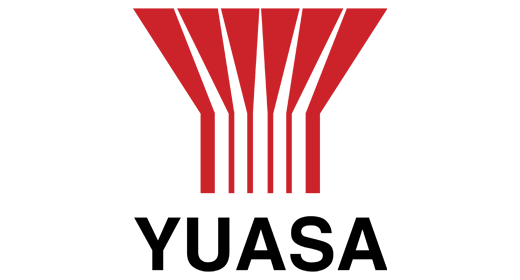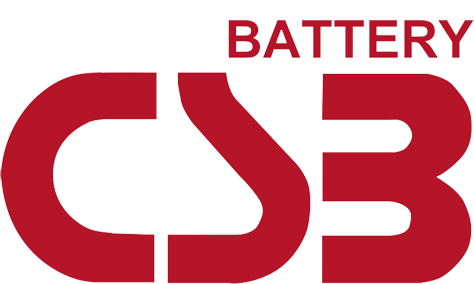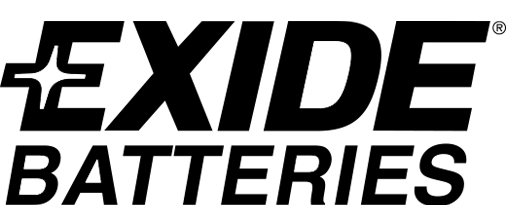The Critical Role of UPS in Supply Chain Management
In an ever-changing digital landscape, the importance of reliable energy cannot be overstated. Agility is the name of the game in our modern, networked world where even a second's interruption in power can lead to significant financial losses and tarnished reputations. That is especially true for businesses where seamless operations are eminent, and any disruption can send ripples throughout the entire supply chain, affecting both productivity and profitability.
Within this context, Uninterruptible Power Supply (UPS) solutions emerge as a critical resource. These systems ensure continuous power flow, enabling operations to run unhindered and serve as a safety net during unexpected power outages, preventing catastrophic data loss and hardware damage. Today's discussion will take a comprehensive look at UPS solutions and their pivotal role within the UK Supply Chain Management landscape.
Engage with us on this enlightening journey as we delve into what UPS solutions are, their indispensable components, key application sectors, and the notable players in the market. We shall also touch upon the noteworthy benefits they bring to UK businesses, share strategies for successfully deploying these systems, and finally, peek into the future trends shaping this sector. Prepare to be empowered with the knowledge to make informed decisions about integrating UPS solutions into your supply chain, further enhancing efficiency and resilience in your operations.

Understanding Uninterruptible Power Supply (UPS) Solutions
While the world is becoming increasingly interconnected, delivering uninterrupted power remains a significant challenge for organisations operating around the globe. That is where Uninterruptible Power Supply (UPS) solutions come into play. To ensure that the operations of vital sectors remain undisrupted, these systems deliver consistent energy without fail, even during power outages or fluctuations. But what exactly are UPS solutions? And why are they so crucial? Let's delve into this topic a little deeper.
Definition of UPS Solutions
An Uninterruptible Power Supply, or UPS, is a piece of equipment designed to provide consistent power to devices, especially computers, servers, and other electronic equipment, even in the face of power outages, surges, or fluctuating voltage levels. The main objective of UPS solutions is to offer a seamless transition from main power to backup power source during a power disruption.
The UPS is usually composed of:
- A battery for storing energy
- An inverter to convert the energy stored in the battery into a voltage suitable for equipment
- A rectifier that charges the battery while also powering the inverter
The UPS is built logically into the power chain of a building or data centre to offer protection to critical systems from power disturbances.
Importance of UPS Solutions in Supply Chain Management
In the dynamic realm of Supply Chain Management, parties involved often have to deal with unpredictable scenarios. Imagine, for example, a large distribution centre that suddenly suffers from a power disruption. This would bring all activities to a complete halt, affecting the whole supply chain from manufacturer to consumer, and potentially resulting in hefty losses.
Here's where UPS solutions step up. They:
- Ensure continuity by offering a seamless transition to the backup power supply during an outage, thus keeping operations running smoothly.
- Protect sensitive equipment from damage that can be caused by voltage fluctuations or surges.
- Allow systems enough time to perform an orderly shutdown in case of prolonged power disruptions, therefore minimising the potential for data loss.
While a UPS can't prevent power interruptions, its ability to provide immediate backup power can mean the difference between a slight hiccup in operations and a complete standstill. Investing in suitable UPS solutions is therefore fundamental to maintaining the efficiency and reliability of the supply chain process.
In short, Uninterruptible Power Supply solutions prove to be indispensable components for various sectors, safeguarding their operations from volatile power conditions. Especially in today's fast-paced environment, where even minor disruptions can lead to substantial consequences, having a robust UPS system is nothing short of a necessity.
Benefits of UPS Solutions in UK Supply Chain Management
In the hustle and bustle of modern commerce, having a well-conducted supply chain provides businesses with a strong competitive edge. In the UK, Supply Chain Management (SCM) has become more complex and critical due to increasing customer expectations, globalisation, and technological advancements. An intricate part of this puzzle is having an Uninterruptible Power Supply (UPS) system that can secure operations and protect against unexpected power issues. Let's delve into the significant benefits that UPS solutions bring to UK Supply Chain Management.
Protection against Power Outages
Imagine you are in the middle of orchestrating an important shipment, and suddenly, everything goes black. Your computer is off, and all your data is probably lost. This is where UPS solutions prove their worth. By providing instant, emergency power to the system when the input power source fails, UPS solutions play a crucial defence role. With a quality UPS system, companies can:
- Maintain continued operations during short-term power outages
- Allow for safe system shutdown to protect data and equipment during longer outages
- Protect against damaging power surges and spikes
By doing so, UPS solutions offer a seamless business process that doesn't need to miss a beat due to power disturbances.
Prevention of Data Loss
In our digital age, data is a precious gem. It carries significant weight in decision-making processes, strategies, and maintaining customer rapport. Consequently, the loss of crucial business data from power disruption can be a major setback. A robust UPS system extends its benefits beyond physical asset protection to ensure data integrity as well. It provides:
- Data backup during power failure
- Protection of sensitive data from power surges
- Security of data transmission and storage
In a nutshell, UPS solutions serve as a business's safety net, acting as insurance for the priceless data that makes every modern company tick.
Mitigation of Downtime
Time is money. This age-old adage has never been truer than in supply chain management. Every moment that a company's operations are down can equate to lost revenue and dissatisfied customers. UPS solutions step in as a saviour to mitigate downtime due to power outages by:
- Supplying immediate power during a primary power source failure
- Allowing enough time to switch over to an alternate power source
- Providing continuous power supply to keep operations up and running
Just picture the significant advantage of possessing a reliable system that can keep the ball rolling even against unforeseen power obstacles.
UPS solutions, therefore, mark themselves as a quintessential asset for UK Supply Chain Management. They not only safeguard businesses from the vulnerability of power outages but also reinforce data protection and help curtail operation downtimes. Thus, integrating UPS solutions into Supply Chain Management equips businesses with armoured resilience to navigate through the uncertainty that power issues pose.
Components of UPS Solutions
In today's hyper-connected world, uninterrupted power supply (UPS) is no longer a luxury but a necessity. Whether it's for your business operations or domestic use, a reliable UPS can prevent significant losses due to power failures and surges. But what exactly makes up a UPS system? Let's take a closer look at its primary components: the power source, the battery, and the inverter.
Power Source
The power source is the heart of any UPS system, providing the main input voltage for your devices. While power cuts and surges are common, a quality UPS is designed to shield your electronics from such power instability, hence ensuring a steady, continuous supply. Here are some key attributes of a UPS power source:
- Stabilised Output: It regulates your electrical frequency, preventing sudden surges or drops in power.
- Consistent Voltage: It ensures a consistent rate of voltage is always delivered to your devices.
- Backup System: It switches to a secondary power source if the primary source fails, resulting in zero downtime.
Bear in mind that the performance of your UPS heavily relies on the power source it's connected to. Hence, an impeccable power source design is crucial for your UPS's efficiency.
Battery
Next up is the battery—essentially your UPS's life jacket. It steps in to keep your devices up and running when the primary power source fails. How durable and long-lasting it is depends largely on its makeup and the technology used. There are two key types of UPS batteries:
- Lead-acid Batteries: These are the most commonly used ones. They're economical and offer decent performance, but they might need more frequent replacement.
- Lithium-ion Batteries: They are lighter, more compact, and can last up to 2-3 times longer than lead-acid batteries. However, they come with a heftier price tag.
When selecting your UPS, the choice between lead-acid and lithium-ion would hinge on your specific needs and budget.
Inverter
Lastly, an inverter plays the fundamental role of converting Direct Current (DC) from the UPS battery into Alternating Current (AC) when the primary power source fails. This enables you to use your electronic devices uninterrupted. Today's market offers various inverter technologies, each with its pros and cons:
- Standby (Offline) Inverters: They switch to battery power when the primary power fails. However, they come with a transfer time.
- Line-Interactive Inverters: They have a built-in automatic voltage regulator which can adjust power levels while keeping the devices on.
- Double Conversion (Online) Inverters: They constantly provide power from the battery, hence offering no transfer time. But they are less energy-efficient.
Your choice of inverter would depend on your tolerance for interruption, needs for voltage regulation, and energy efficiency preferences.
There's a lot more to a UPS system than meets the eye. When choosing one, remember to consider each of these components closely. Ensure their features align with your unique requirements to achieve seamless operations in all power situations. With the right UPS solution on your side, you're undoubtedly one step closer to a safer, more stable digital workspace.
Key Players in the UPS Solutions Market
In an era of escalating urgency for uninterrupted power supply, the UPS Solutions market has experienced a significant boom. Unexpected power outages can result in operational delays and consequential financial losses for businesses. It's here that Uninterruptible Power Supply (UPS) systems perform a stellar role, ensuring seamless operation even in the event of power disruptions. Now, let's take a closer look at those entities standing on the frontline of this industry within the United Kingdom.
Leading UPS Solution Companies in the UK
- APC by Schneider Electric: With operational units across the globe, APC delivers energy-efficient solutions that enhance the capacity of your infrastructure while effectively reducing energy costs. Schneider's UPS systems stand out for their Smart-UPS On-Line, which offers high performance for power-hungry devices and critical servers.
- Eaton: Famed for its reliability and versatility, Eaton's UPS solutions power a wide range of industries. Eaton UPS systems offer superior power quality and continue to endure even under the harshest environmental conditions.
- Riello UPS: Another major icon in the industry, Riello UPS offers a range of versatile and efficient UPS solutions. Their systems incorporate cutting-edge technology, ensuring ultimate reliability and prompt customer support.
- Vertiv: Formerly known as Emerson Network Power, Vertiv evokes trust for its versatile solutions, including high-performance UPS systems. Their UPS systems guarantee robust power protection for critical infrastructure.
These UPS solution companies have proven to be powerhouses, working relentlessly to develop avant-garde technologies and deliver top-tier products and services. This ensures businesses are immune to unforeseen power disruptions that could potentially rock their operational capacities. The fascinating strides these companies are making have indeed cast a new light on the prospects of the UPS Solutions Market in the UK and beyond.
In the grand scheme of things, it's safe to say that these power players form the backbone of countless industries, creating a spider web of connectivity and continuous power supply, fostering an environment for businesses to thrive undeterred. So, for every firm seeking to safeguard its operations from power hiccups, these UPS solution companies are your go-to savers. Let them be your power warriors!
Application of UPS Solutions in Different Industries
In the current ever-evolving business landscape, maintaining an uninterrupted power supply (UPS) has become more crucial than ever. This is especially true for industries where even a brief power cut can result in substantial financial loss, or worse, risk of human life. Leveraging UPS solutions, businesses can ensure round-the-clock power supply, overcoming unexpected power disruptions that could seriously hamper operations.
Retail
The retail industry is one where the benefits of UPS solutions cannot be overstated. Consider the scenario of a superstore – a power interruption here could lead to the shutdown of point-of-sale (POS) systems, security systems, and electronic data. As a result, the store might not only lose sales but also risk theft and data loss. With UPS solutions, retailers can ensure that:
- Sales continue even during power cuts,
- Security systems remain functional, deterring theft,
- Data is protected, preventing catastrophic data loss.
Manufacturing
In manufacturing, every second of downtime can cost thousands. Uninterrupted power is critical to keep the production lines running smoothly. Moreover, many pieces of manufacturing equipment are sensitive to power fluctuations. Using a UPS solution helps by:
- Ensuring equipment safety by providing a stable power supply,
- Reducing downtime by supplying power during a blackout,
- Protecting the business from substantial financial losses.
Healthcare
The healthcare sector potentially has the highest stakes when it comes to power interruptions. Hospitals always need to be operational, given that patient lives could be at risk during a power outage. Crucial systems such as life support and surgery equipment, medical refrigeration, and electronic health records must continue to function, no matter what. Therefore, UPS solutions can:
- Maintain the functionality of critical medical equipment,
- Keep electronic health records secure and accessible,
- Grant peace of mind to health professionals and patients alike.
Transportation and Logistics
In the transportation and logistics industry, real-time data communication and updates are of paramount importance. A power disruption can severely hinder tracking, leading to missed schedules, delays, and lost cargo. UPS solutions can guarantee:
- Non-stop data communication,
- Accurate tracking and scheduling,
- Greater efficiency and customer satisfaction.
In a rapidly industrialising world, the demand for reliable, continuous power supply is only set to increase. From retail to healthcare to transportation, UPS solutions can play a decisive role, enabling smooth operations regardless of external power conditions. As such, the role of UPS solutions traverses industry boundaries, making them an essential component of any forward-looking, resilient, and risk-averse business strategy.
Best Practices for Implementing UPS Solutions
In today's digital world, uninterrupted power supply (UPS) solutions play a crucial role in safeguarding valuable data, and sensitive hardware, and maintaining continuous business operations. Whether you're handling a sprawling data centre, a small business enterprise, or a home office, employing a UPS system can offer a crucial line of defence against power disturbances. Here's a closer look at some of the best practices for introducing UPS solutions into your work environment.
Conducting Power Analysis
An effective UPS implementation starts with a comprehensive power analysis. The key is to evaluate the power requirements of your devices, considering aspects such as:
- The total load your devices will place on the UPS system.
- The length of time your devices need to keep running in a power outage.
- The level of power quality your devices require to operate optimally.
A comprehensive power analysis not only ensures appropriate sizing but also helps avoid issues like UPS overloads, which can lead to expensive equipment damage and unplanned downtime.
Choosing the Right UPS Solution
Selecting the right UPS solution is as essential as the power analysis. Different UPS systems cater to varying needs - from providing basic battery backup to delivering sophisticated power conditioning. Choosing the correct UPS solution can be guided by factors like:
- The type of devices to be connected.
- The operating environment.
- Your budget and space constraints.
To keep hazardous power fluctuations from harming your sensitive devices, you might favour UPS solutions that offer advanced power conditioning. Alternatively, for less sensitive equipment, a basic battery backup UPS could suffice. Prioritising your needs will assist you in making the right decision.
Regular Maintenance and Testing
Maintaining the health of your UPS system is the key to its longevity. Regular maintenance and testing can help predict and preempt problems before they occur. For standard UPS maintenance, consider procedures like:
- Running regular diagnostics to identify potential UPS battery failures.
- Checking for physical wear, such as frayed power cables or insulator damage.
- Ensuring proper ventilation to prevent overheating.
Aside from this, performing regular functional testing can confirm if your UPS is capable of handling a real-world power failure.
Implementing UPS solutions might involve an initial investment, but the assurance of uninterrupted business operations far outweighs the costs. By conducting accurate power analysis, choosing the right UPS solution, and maintaining and testing your UPS system regularly, you can protect your devices from power disturbances and significantly reduce the potential for operational disruptions. This proactive approach to power management provides peace of mind in our increasingly digital, interconnected world.
Future Trends in UPS Solutions
Planning for the future can sometimes feel like trying to predict the lottery numbers. However, when it comes to the world of Uninterruptible Power Supply (UPS) solutions, we have more than just a crystal ball to guide us. Technological advancements, market demands, and greater environmental consciousness are all shaping the future trends of UPS Solutions. Let's explore some.
Green and Energy-Efficient Solutions
The drive towards a more sustainable future is permeating every corner of the industry, and the UPS market is no exception. As businesses become increasingly aware of their carbon footprints, a growing demand for greener, energy-efficient UPS solutions is emerging. The next generation of UPS solutions is likely to include advanced features such as energy-saving systems and better-performing batteries that consume less power.
Smart UPS Solutions
The Internet of Things (IoT) revolution is well underway, and the UPS industry is embracing its potential rewards enthusiastically. By integrating Smart UPS, businesses can remotely monitor their devices, anticipate failures, and carry out predictive maintenance. This not only increases efficiency but also helps to prevent unexpected breakdowns, saving valuable time and money for businesses.
Modular UPS Systems
Modularity is a key trend influencing the design of future UPS solutions. Modular systems offer increased flexibility and scalability, allowing companies to easily expand their power supply as their needs change. Investment in these systems can be spread over time, making them a cost-effective choice for many businesses.
Increased Adoption in Emerging Markets
The value of UPS solutions is beginning to be recognised in new sectors, sparking growth in emerging markets. For instance, data centres, which are crucial to industries like e-commerce, are experiencing a boom in developing countries. As these industries prosper, the demand for reliable UPS solutions to protect critical systems and prevent downtime is set to rise.
A deeper understanding and adaptation of these trends will ensure companies harness the complete potential of UPS solutions. Indeed, the future of UPS is replete with promise. It provides an exciting vista where sustainability meets efficiency, where technology integrates seamlessly with power management, yielding not just functional but strategic advantages for businesses. It's not just about keeping the lights on anymore; it's about powering the future. Remember, fortune favours the foresighted. So, stay well-advised and adroitly informed on the path to success in the evolving world of power management.
Frequently Asked Questions
-
What is an uninterruptible power supply (UPS)?
An uninterruptible power supply (UPS) is a device that provides emergency power to electrical equipment when the main power supply fails or fluctuates. It helps prevent data loss, equipment damage, and downtime during power outages or unstable power conditions.
-
What are the benefits of using UPS solutions in supply chain management?
PS solutions play a critical role in the supply chain management of businesses by ensuring continuous power supply to critical systems and sensitive equipment. They minimise disruptions, protect data integrity, prevent loss of productivity, and enable organisations to maintain operational efficiency even during power-related issues.
-
What are the different types of UPS solutions available?
There are three main types of UPS solutions available: 1. Standby UPS: Provides basic protection with battery backup during power failures. 2. Line-Interactive UPS: Offers better power conditioning and voltage regulation. 3. Online or Double Conversion UPS: Provides the highest level of protection with continuous power supply and isolation from power fluctuations.
-
What factors should be considered when selecting a UPS solution for supply chain management?
When selecting a UPS solution for supply chain management, factors such as load capacity, runtime, scalability, redundancy, monitoring capabilities, maintenance requirements, and compatibility with existing infrastructure should be considered. It is also important to assess future power demands and growth potential.
-
How often should UPS batteries be replaced?
UPS batteries should typically be replaced every 3 to 5 years, as their capacity diminishes over time. Regular battery testing and monitoring should be conducted to ensure optimal performance and to avoid unexpected failures during power outages.














